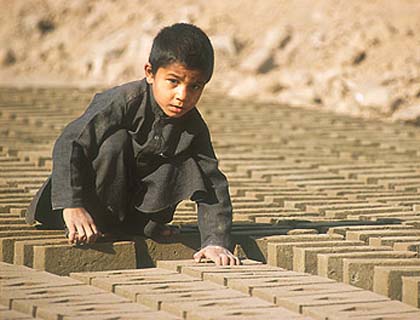To grow up in poverty can have a lasting impact on a child. What is less understood is how it affects the early relationships that shape a child’s social and emotional growth.
‘The world’s most ruthless killer and the greatest cause of suffering on earth is extreme poverty.’ This statement emphasizes the importance of poverty as a variable adversely influencing health. Poverty is a multidimensional phenomenon, encompassing inability to satisfy basic needs, lack of control over resources, lack of education and poor health. Poverty can be intrinsically alienating and distressing, and of particular concern are the direct and indirect effects of poverty on the development and maintenance of emotional, behavioral and psychiatric problems.
Poverty and social inequality have direct and indirect effects on the social, mental and physical well-being of an individual. It is important to note that poverty and inequality are closely linked. The effects of income inequality also spill over into society, causing stress, frustration and family disruption – which then increase the rates of crime, homicide and violence.
Of course, money is not a guarantor of mental health, nor does its absence necessarily lead to mental illness. However, it is generally conceded that poverty can be both a determinant and a consequence of poor mental health.
Economic problem remains a stubborn fact of life across our country. As a result the social services that would normally act as a safety net for poor and vulnerable people simply do not exist. One in three children in Afghanistan under the age of five are moderately or severely underweight for their age because their families have not been able to feed them properly. As they get older, many kids are forced to work on the streets just to make sure there is food on the table.
In poor families children could feel homelessness due to lack of parents’ attention. It is because poverty is blocking the ways of parents to perform the role of good parenting. In most of the poor families, usually both mother and father work for the survival.
Parents have to take and pay bills, make sure to maintain a roof over their head, make sure bills are paid, and have to buy food. So by the end of the month, they are running low, because they just don’t have the money to maintain the whole month.
Thousands of Afghan children have chosen to work instead of going to schools after being forced into labor by abject poverty in Afghanistan.if you walk in Kabul’s street, you will see many children who spend their days collecting small pieces of wood and blackish seeds that they burn inside a tin can. Walking the streets as an "espandi," they wave the tin can at passersby in the belief that the smoke will protect them from curses and bring them good luck. In return, some people give them small amounts of money.
Among the children, there is about 11 years old who introduces himself Amanullah. He says, “I make 50 Afs a day and take some bread home,” he adds, “I live under a tent along with my father, mother, five sisters, and five brothers. As the eldest son, I do the routine. My father does not have a job. He is capable of doing work. But when he goes to the city seeking a job, people tell him that he is too old to be employed.”
Amanullah’s younger brothers also work in the streets, begging and selling bottled water, rather than going to school. Their entire dream is to be able to go to school one day.
Poverty, being a difficult-to-end cycle, will only make the poor even poorer. This is detrimental to a country’s economy, as children in poor countries are unable to fill their stomachs, not mentioning to receive education.
Economically deprived parents struggle for the survival of their families. They are often unable to pay attention to the importance of parental care. Therefore, the children in poor families usually miss the personality development teachings from their first learning institution the family.
Lack of parents’ attention, especially in early childhood years, could negatively impact the child’s personality and therefore their future in the long run.
If child’s upbringing fails, both the child and the society will suffer a great deal of pain and trouble. Hence, there is a need to start focusing on poverty and lack of parental training.
It merits mentioning that through recent years, analysts have been able to point out that politically and economically weak nations often fall prey to terrorism namely Afghanistan, Iraq, and Yemen. Poverty too is a major factor in explaining the spike in terrorism in recent years. Between the years of 1933 to 1973 were times when Afghanistan experienced political and economic stability. By the end of the Soviet-Afghan War, the country had been ravaged by infighting and devastation caused by the Soviets. Only then did terrorism flourish.
First, for poverty alleviation state parties should generate more employment opportunities. Moreover, there could be a possibility of providing small loans to the poor families – which help them to establish their own enterprises.
It is aptly state by Samuel Johnson, “Resolve not to be poor: whatever you have, spend less. Poverty is a great enemy to human happiness; it certainly destroys liberty, and it makes some virtues impracticable, and others extremely difficult.”

